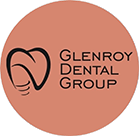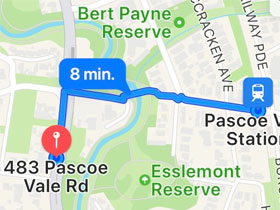 Too many people are unaware of the seriousness of an untreated dental abscess. An abscess is a pocket of pus developing from a bacterial infection in the mouth.
Too many people are unaware of the seriousness of an untreated dental abscess. An abscess is a pocket of pus developing from a bacterial infection in the mouth.
This can be a painful infection within a tooth (periapical), or one that has developed within the gums around a tooth (periodontal). In most cases, dental abscesses cause intense pain and swelling and constitute a dental emergency.
If not treated quickly and effectively, the outcomes can range from unfortunate to fatal. Not only can dental infection cause you to lose a tooth, it can reach surrounding lymph nodes, the circulatory system, and the brain. In extreme cases, a neglected tooth abscess can kill.
At Glenroy Dental Group, we want to share our knowledge of dental abscesses to help ensure that you and your family remain safe and healthy!
Dangers of dental abscesses
Igonring a dental abscess is unwise and potentially life threatening. An infection in the tooth or gums can lead to:
- Infection of the surrounding bone. The infection can cause weakening of bone structures, which makes it more difficult for the jaw to support the teeth.
- Tooth loss. If an abscessed tooth is diagnosed and treated early, root canal therapy and a crown can often save the tooth. If treatment is not in time, the tooth must be extracted.
- Infection in oral tissues and sinuses. An abscess in upper teeth lead to a painful sinus infection.
- Septicemia. Septicemia from a dental abscess occurs when an abscess ruptures, spills into the blood, and circulates throughout the body. This is an extremely life-threatening condition.
- Brain abscess. Infection from a dental abscess can enter the brain in multiple ways. A brain abscess can be quite difficult to treat because of the blood-brain barrier.
Causes of abscess in the mouth
Abscesses most commonly occur if tooth decay is left untreated, however there are other possible causes as well:
- Gum disease (gingivitis)
- Cracked tooth
- Trauma (usually accidents)
- Complications from dental treatments including implants, root canal treatments, and extractions
- Rough/over-firm tooth brushing
- Food stuck between teeth and gums
Further, people with compromised immune systems are at greater risk of dental infection. The immune system can be affected by underlying heath conditions; a common one is diabetes. Some medical treatments, including chemotherapy, also decrease natural immunity, giving infections a better chance to take hold.
Signs and symptoms
A toothache is often the first symptom. Left unattended to, what begins as a minor issue can become infected, resulting in pain, redness, swelling and high fever. Other symptoms include a bad taste in your mouth or bad breath that brushing and rinsing with mouthwash cannot reduce.
Symptoms of possible infection include:
- Throbbing pain in the tooth, jawbone or neck
- Swelling in the cheek
- Sensitivity to hot or cold (with heat sensitivity being an issue of greater concern)
- Pressure-related sensitivity
- Fever
- Swollen lymph nodes in the neck
If you have a fever and dental swelling at the same time, or if you develop trouble breathing or swallowing, you should seek medical attention immediately. This is a sign of a severe infection that may have escaped a tooth and reached your jawbone or surrounding areas. Contact your Glenroy Dental Group dentist for same-day treatment.
The best thing you can do for your health is to prevent dental abscesses from taking hold to begin with. See your dentist every six months (or as recommended) as we can both detect and prevent severe dental problems.
Preventing dental abscesses at home
Reduce your risk of developing dental infections by keeping your teeth and gums as healthy as you can.
This includes:
- Using floss or an interdental brush at least once a day to clean between your teeth and under the gum line.
- Brushing your teeth twice a day – spending at least two minutes each time.
- Avoid rinsing your mouth with water or mouthwash after brushing because this washes the protective toothpaste away – just spit excess toothpaste out.
- Reduce intake of sugary and starchy food and drinks – particularly between meals or before sleeping.
- Visit your dentist regularly – your dentist can suggest how often you should have a check-up.
The Glenroy Dental Group and You
At The Glenroy Dental Group, your health and happiness, and that of your children and family, are our dental goals. We use the most modern technology available and employ the latest dental techniques to ensure that your dental health and appearance are at the highest level. We want you to receive the best possible dental care with no pain or anxiety! If you think you might have an abscess, or simply need a quick, efficient, and friendly checkup and clean, visit The Glenroy Dental Group!
Our offices are conveniently located in the Pascoe Vale Road shopping strip, Glenroy, with ample parking space, we are located within easy walking distance of the Glenroy train station.
Our Promotion for New Patients Only!
– Exam, Scale & Clean for only $99
Call (03) 9306 6511 or visit us at 2/830 Pascoe Vale Rd in Glenroy.







